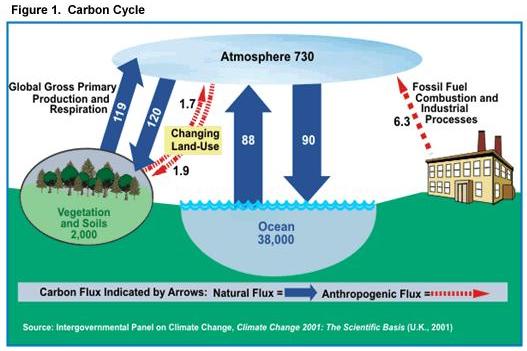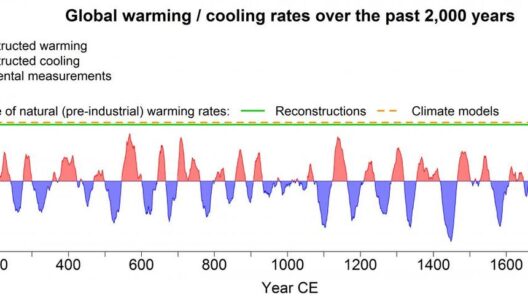The escalating phenomenon of global warming is a pressing issue that demands our immediate attention. At the core of this crisis lies the ubiquitous act of burning fossil fuels, a practice ingrained in modern civilization. This quiz will elucidate the multifaceted ways in which such combustion impacts our collective future, revealing underlying reasons for our fascination and concern.
Firstly, let’s consider what fossil fuels are. Comprising coal, oil, and natural gas, fossil fuels are derived from the ancient remains of plants and animals buried beneath the Earth’s surface for millennia. Combustion of these fuels for energy releases carbon dioxide (CO2) into the atmosphere—a greenhouse gas pivotal to the climate change narrative. When we burn fossil fuels, we inadvertently enhance the greenhouse effect, trapping heat within the atmosphere and leading to a plethora of environmental repercussions.
Quiz Question 1: How does the burning of fossil fuels contribute to the greenhouse effect?
The answer lies in the archetypal greenhouse gases, of which CO2 is paramount. As humans continue to expand their reliance on fossil fuels for transportation, electricity, and industrial processes, the volume of carbon dioxide released escalates. With increasing atmospheric CO2 concentrations, more heat is retained, raising global temperatures. This phenomenon, known as global warming, manifests in diverse ways, including melting ice caps, rising sea levels, and extreme weather patterns.
But why should this matter to us? The implications are profound. Quiz Question 2: What are the cascading effects of global warming on natural ecosystems?
The interconnectedness of ecosystems means that the adverse effects of climate change permeate all facets of the environment. Disruption of habitats results in diminished biodiversity as species struggle to adapt to changing climates. For instance, coral reefs—often referred to as the “rainforests of the ocean”—are particularly vulnerable. As ocean temperatures rise, corals experience bleaching, leading to significant deterioration of marine biodiversity. This loss does not merely affect aquatic life; it ripples through food chains and adversely impacts human industries reliant on these ecosystems.
Furthermore, global warming exacerbates natural disasters. Quiz Question 3: In what ways does climate change influence the frequency and severity of extreme weather events?
Scientific research substantiates the correlation between rising global temperatures and the frequency of hurricanes, droughts, and floods. Warmer air can hold more moisture, leading to increased precipitation and heightened intensity of storms. Conversely, regions that experience prolonged droughts may witness devastating agricultural losses, prompting food insecurity and economic instability. This cyclical relationship between climate change and extreme weather underscores the urgency for action.
Quiz Question 4: How does socioeconomic status intersect with the impacts of global warming?
The ramifications of climate change are disproportionately felt by marginalized communities, often exacerbating existing health disparities and economic inequities. Low-income populations may lack resources to prepare for or recover from climate-related events. As temperatures soar, the urban heat island effect becomes more pronounced in densely populated areas, jeopardizing public health. Vulnerability to climate change is not merely a scientific concern; it is a matter of social justice.
Now, let’s examine potential solutions. Quiz Question 5: What are effective strategies for reducing dependence on fossil fuels?
Transitioning to renewable energy sources is paramount for mitigating the effects of global warming. Wind, solar, and hydropower present viable alternatives that significantly lower carbon emissions. Governments and organizations must incentivize the adoption of clean technologies and bolster energy efficiency initiatives. Furthermore, fostering sustainable transportation methods—be it public transit, cycling, or electric vehicles—can greatly diminish fossil fuel consumption.
In addition to energy production and transportation, individual action plays a critical role. Quiz Question 6: What everyday practices can individuals adopt to combat global warming?
Personal choices, though small in isolation, cumulatively have significant impact. Reducing energy consumption by using energy-efficient appliances, adopting a plant-based diet, and embracing recycling and composting are practical steps. Moreover, raising awareness and promoting discussions about climate change can amplify collective efforts toward sustainability.
It is imperative to recognize the psychological component of environmental activism. Quiz Question 7: What drives the public’s fascination with climate change?
Humans possess an inherent connection to nature; the ecological crisis evokes a deep sense of responsibility. The stark realities of climate change are simultaneously daunting and galvanizing. This intrinsic connection to our environment fosters fascination with innovative solutions and the quest for a sustainable future. Engaging with this topic becomes not only a moral obligation but also a source of inspiration for collective action.
As we reflect on the ramifications of burning fossil fuels and the broader narrative of global warming, it becomes evident that the stakes are monumental. The earth’s ecosystems, societal structures, and our very way of life are intricately woven into the fabric of climate stability. Understanding the profound impacts of fossil fuels enables us to forge paths toward a sustainable future. We must embrace the challenge, transform our reality, and cultivate a world that values ecological balance and resilience.
In conclusion, the Global Warming Quiz serves as a reminder of the complex interdependencies within our environment and the profound implications of our actions. It highlights the urgent need for awareness and engagement in fighting climate change. The answers to these questions are not mere theoretical exercises but call for a paradigm shift that prioritizes our planet’s health for generations to come.







